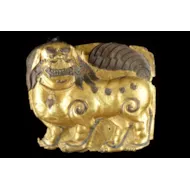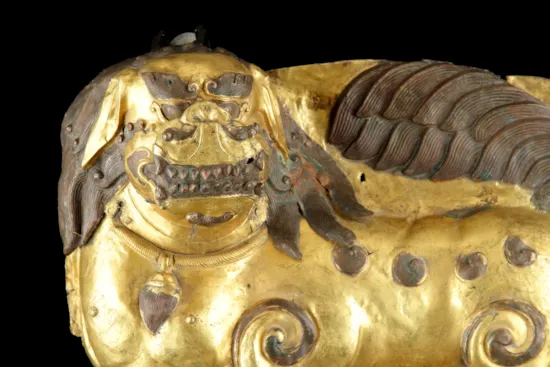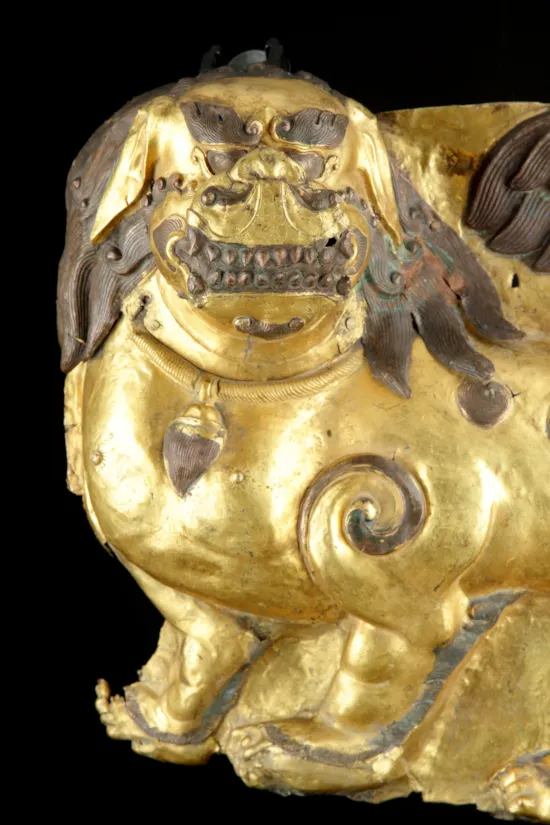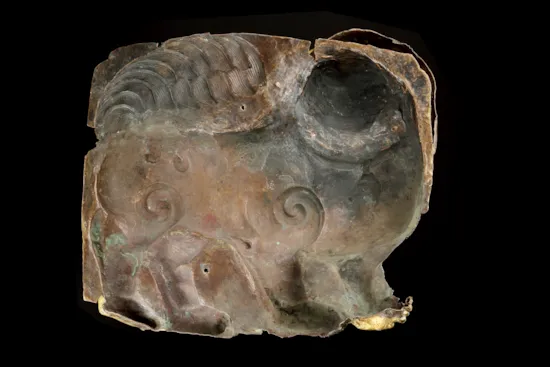Tibetan Gilt Copper Repoussé Panel Depicting a Standing Snow Lion
A Tibetan Gilt Copper Repoussé Panel Depicting a Standing Snow Lion with Typical Broad Mouth Flowing Mane and Bushy Tail
18th - 19th Century
Size: 37cm high, 42cm wide, 16cm deep - 14½ ins high, 16½ ins wide, 6¼ ins deep
18th - 19th Century
Size: 37cm high, 42cm wide, 16cm deep - 14½ ins high, 16½ ins wide, 6¼ ins deep
A Tibetan Gilt Copper Repoussé Panel Depicting a Standing Snow Lion with Typical Broad Mouth Flowing Mane and Bushy Tail
18th - 19th Century
Size: 37cm high, 42cm wide, 16cm deep - 14½ ins high, 16½ ins wide, 6¼ ins deep
18th - 19th Century
Size: 37cm high, 42cm wide, 16cm deep - 14½ ins high, 16½ ins wide, 6¼ ins deep
The celestial animal and national emblem of Tibet, snow lions symbolise power and strength and are traditionally placed above temple doors or on altars inserted into the ‘Torana’; the arch of glory, which surrounds the divinity. Their function is to act as guardians and defenders and in this panel he is shown with his jaws parted as if emitting a menacing growl to ward off evil spirits.
They are thought to live in the highest mountains, representing the yogis who live as hermits up in the Himalayas. The snow lion is the protector of the Buddha and is depicted supporting his throne. A single roar from his great mouth was considered to be so powerful that it could cause dragons to fall from the sky.
They are thought to live in the highest mountains, representing the yogis who live as hermits up in the Himalayas. The snow lion is the protector of the Buddha and is depicted supporting his throne. A single roar from his great mouth was considered to be so powerful that it could cause dragons to fall from the sky.
Ex Private collection of the late Richard Nathanson
Tibetan Gilt Copper Repoussé Panel Depicting a Standing Snow Lion

SOLD






YOU MAY ALSO LIKE

